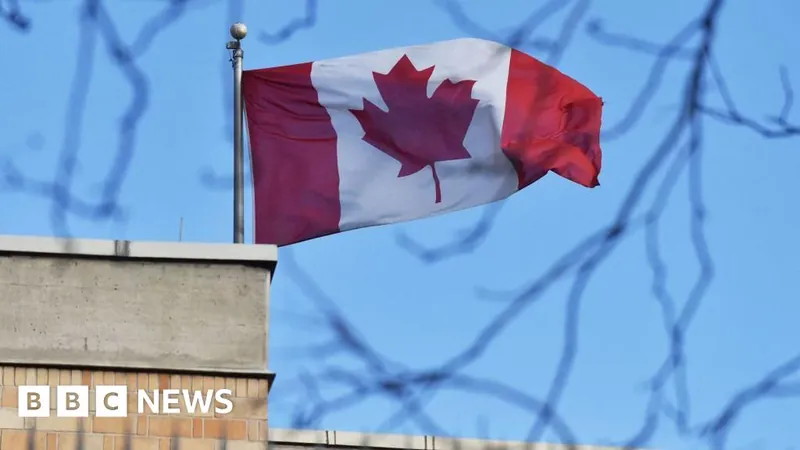
Shocking Executions: Canada Condemns China for Death Penalty of Four Dual Citizens Amid Tensions
2025-03-20
Author: Kai
In a harrowing revelation, officials from Canada confirmed that four dual Canadian citizens were executed in China earlier this year on drug-related charges. The grim news has sent shockwaves through Canada and raised concerns regarding diplomatic relations between the two nations, which have been strained in recent years.
The identities of those executed remain undisclosed, in line with Canadian privacy laws, as stated by Foreign Minister Mélanie Joly. This act of executing foreign nationals for drug offenses is notably rare, yet China maintains a strict approach towards drug-related crimes, often leading to severe penalties, including the death penalty.
Following the executions, a spokesperson from the Chinese embassy in Canada urged the Canadian government to “stop making irresponsible remarks” and insisted that there was “solid and sufficient” evidence supporting the actions taken against the Canadians. China's foreign ministry defended its judicial process, asserting that the executions were executed “in accordance with the law” and emphasized their “sovereignty” in handling such cases.
High-profile cases such as this highlight the complexities of dual citizenship, which China does not recognize. Joly mentioned having closely engaged in advocacy efforts alongside other officials, including former Prime Minister Justin Trudeau, in hopes of obtaining clemency for the condemned individuals.
Amid ongoing discussions over human rights, critics in Canada are raising alarms. Ketty Nivyabandi from Amnesty International Canada has called these executions “shocking and inhumane,” urging a renewed evaluation of Canada’s stance on China. "We hold in our hearts the families of the victims as they grapple with this unimaginable loss," she stated.
The cold reality of China’s criminal justice system where the death penalty is meted out for serious crimes—including drug smuggling, corruption, and espionage—poses a substantial risk for foreign nationals. Although precise figures are not publicly available, human rights organizations believe that China has one of the highest execution rates globally.
The plight of Canadian nationals has elevated tensions further. In a prominent case from 2019, Robert Lloyd Schellenberg received a death sentence for drug trafficking, earning widespread condemnation from Canadian officials, though he was not among those executed this year.
Relations between Canada and China took a notable downward turn in 2018 following the arrest of a Chinese telecom executive, Meng Wanzhou, at Canada's behest based on a U.S. extradition request. The aftermath saw the detention of two Canadians in China, both of whom were eventually released.
Recent reports, based largely on leaked intelligence, have also accused China of meddling in Canadian federal elections, prompting further discord. China has dismissed these allegations as "baseless and defamatory." Additional tensions arose when retaliatory tariffs on Canadian agricultural imports were enacted by China following trade measures imposed by Canada on Chinese goods.
The events surrounding the executions and deteriorating bilateral ties represent a critical juncture in Canada's relationship with China, compelling Canadian leadership to address the ongoing human rights concerns and navigate this diplomatic minefield. As calls for justice and better treatment of citizens imprisoned abroad continue to intensify, many speculate about how Canada will respond to the broader implications of these tragic executions.





 Brasil (PT)
Brasil (PT)
 Canada (EN)
Canada (EN)
 Chile (ES)
Chile (ES)
 Česko (CS)
Česko (CS)
 대한민국 (KO)
대한민국 (KO)
 España (ES)
España (ES)
 France (FR)
France (FR)
 Hong Kong (EN)
Hong Kong (EN)
 Italia (IT)
Italia (IT)
 日本 (JA)
日本 (JA)
 Magyarország (HU)
Magyarország (HU)
 Norge (NO)
Norge (NO)
 Polska (PL)
Polska (PL)
 Schweiz (DE)
Schweiz (DE)
 Singapore (EN)
Singapore (EN)
 Sverige (SV)
Sverige (SV)
 Suomi (FI)
Suomi (FI)
 Türkiye (TR)
Türkiye (TR)
 الإمارات العربية المتحدة (AR)
الإمارات العربية المتحدة (AR)